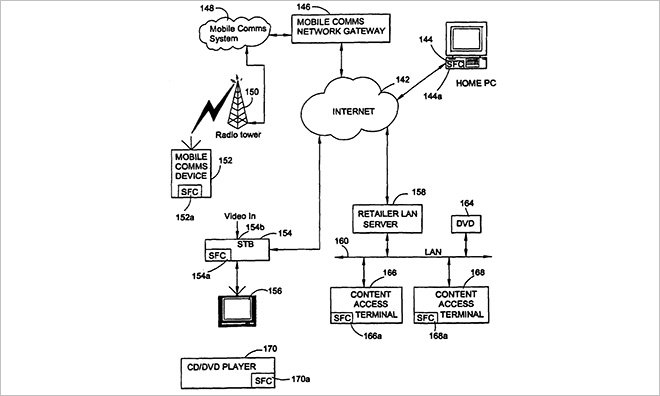Months after a Texas jury ordered Apple to pay $532.9 million to a product-less company that critics have dubbed a "patent troll," a judge has tossed out that decision, declaring that instructions given to the jury may have improperly affected the damage assessment.
A new trial to redetermine damages in the case will occur on Sept. 14, U.S. District Judge Rodney Gilstrap said in a decision Tuesday, as summarized by Reuters. Gilstrap reportedly said his jury instructions may have "skewed" jurors.
The half-billion-dollar decision stems from a 2013 lawsuit, in which Smartflash claimed that Apple's iTunes Store, iOS App Store, Mac App Store and iAd, among other products, infringe on three of its patents related to "data storage and managing access through payment systems."
Apple has vowed to fight Smartflash, accusing the company of "exploiting our patent system."
Smartflash was founded by inventor Patrick Racz in the early 2000s as a way to market and commoditize his patents, some of which date back to 1999. As a non-practicing entity, the firm operates solely through patent licensing and litigation, causing critics to dub the company a "patent troll."
Court documents allege that around the time of Smartflash's founding, Racz met with executives from what is now Gemalto SA to market technology relating to the patents-in-suit. Among those who gained knowledge of the patented tech was Augustin Farrugia, who left Gemalto in 2002 and subsequently took a position as Apple's senior director of Internet service security and DRM technologies.
Smartflash originally sought $852 million in damages from Apple. After the damages were announced in February, the intellectual properly holder promptly filed another patent suit against Apple, seeking even more damages for alleged infringement.
Like many other patent holders, Smartflash has filed its lawsuits in the Eastern District of Texas because of the area's historically favorable outcomes towards intellectual property owners.
Apple had vowed to appeal the original $532.9 million decision in Smartflash's favor, and indicated it would push back hard to overturn the decision. After the damages were announced, a spokesperson for Apple accused Smartflash of "exploiting our patent system," and said the company "makes no products, has no employees, creates no jobs, (and) has no U.S. presence."
 Neil Hughes
Neil Hughes







-m.jpg)






 Charles Martin
Charles Martin
 Malcolm Owen
Malcolm Owen
 William Gallagher
William Gallagher

 Christine McKee
Christine McKee
 Wesley Hilliard
Wesley Hilliard

 Andrew Orr
Andrew Orr








11 Comments
Great news. I can't stand patent trolls. F Smartflash.
Question is, in which direction does the judge think his instructions skewed the jury? Given the venue, East Texas, perhaps the judge feels the jury didn't set the damages high enough.
Technicality. The lawsuit should just be dismissed.
[quote name="RadarTheKat" url="/t/187111/judge-tosses-smartflashs-533m-victory-against-apple-damages-to-be-retried#post_2745500"]Question is, in which direction does the judge think his instructions skewed the jury? Given the venue, East Texas, perhaps the judge feels the jury didn't set the damages high enough.[/quote] LOL .... but wait I gues that isn't funny really ... you could be correct! :\
This is what prompted Judge Gilstrap (who's probably heard more patent infringement cases than any other US judge) to set aside the original; judgement. Note that it is still over what damages to award and not whether Apple is guilty of infringement AFAIK. They are still found to have improperly used the IP and owe damages for it. "The judge had briefed the jury on the “entire market value rule,” at the request of Apple, which sets the market value of the product as the basis for calculation of royalty and hence damages from a patent infringement, according to the filing Tuesday. Judge Gilstrap wrote last month that he intended to hear oral arguments on a possible new trial on damages as the evidence presented at trial shows that [B]Smartflash’s damages model did not incorporate the entire market value rule.[/B] Apple had asked for a new trial on damages in the light of the instruction the court provided to the jury. Judge Gilstrap wrote Tuesday that he expects a new damages model from Smartflash in view of concerns about the model it used at the last trial. The judge ruled earlier this month that Apple’s infringement was not willful. A decision to the contrary would have exposed Apple potentially to higher damages. Smartflash’s royalty base had encompassed about 23 percent of the total revenue generated by the sales of the accused products, and not 100 percent of it, based on a consumer survey that asked whether the consumers were motivated to purchase the accused products because of the infringing features, according to Judge Gilstrap. The company then multiplied a royalty, also based on a consumer survey, with this royalty base to calculate its ultimate reasonable royalty estimate." http://www.pcworld.com/article/2945312/new-trial-on-damages-ordered-in-apple-smartflash-patent-dispute.html